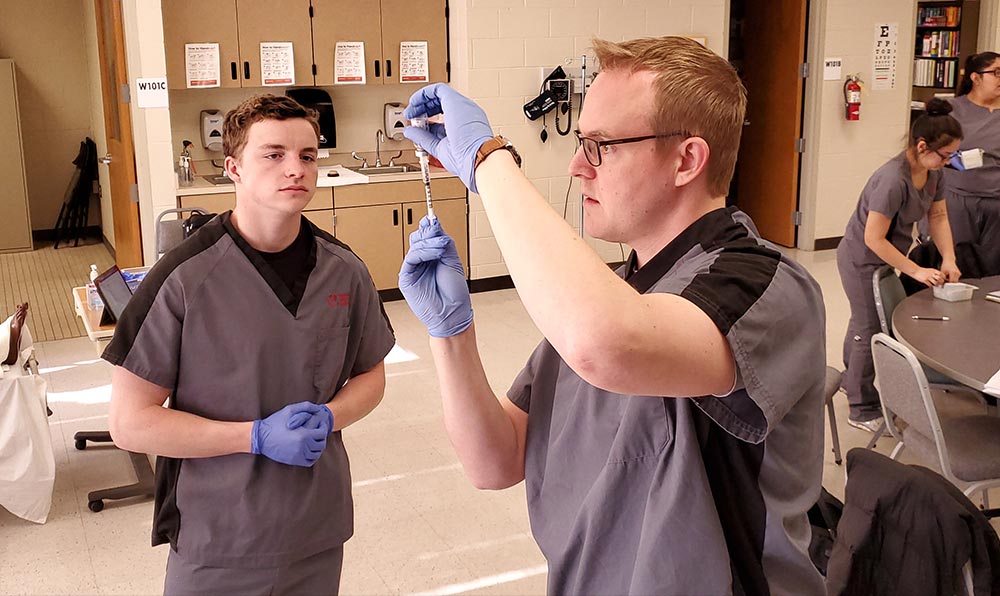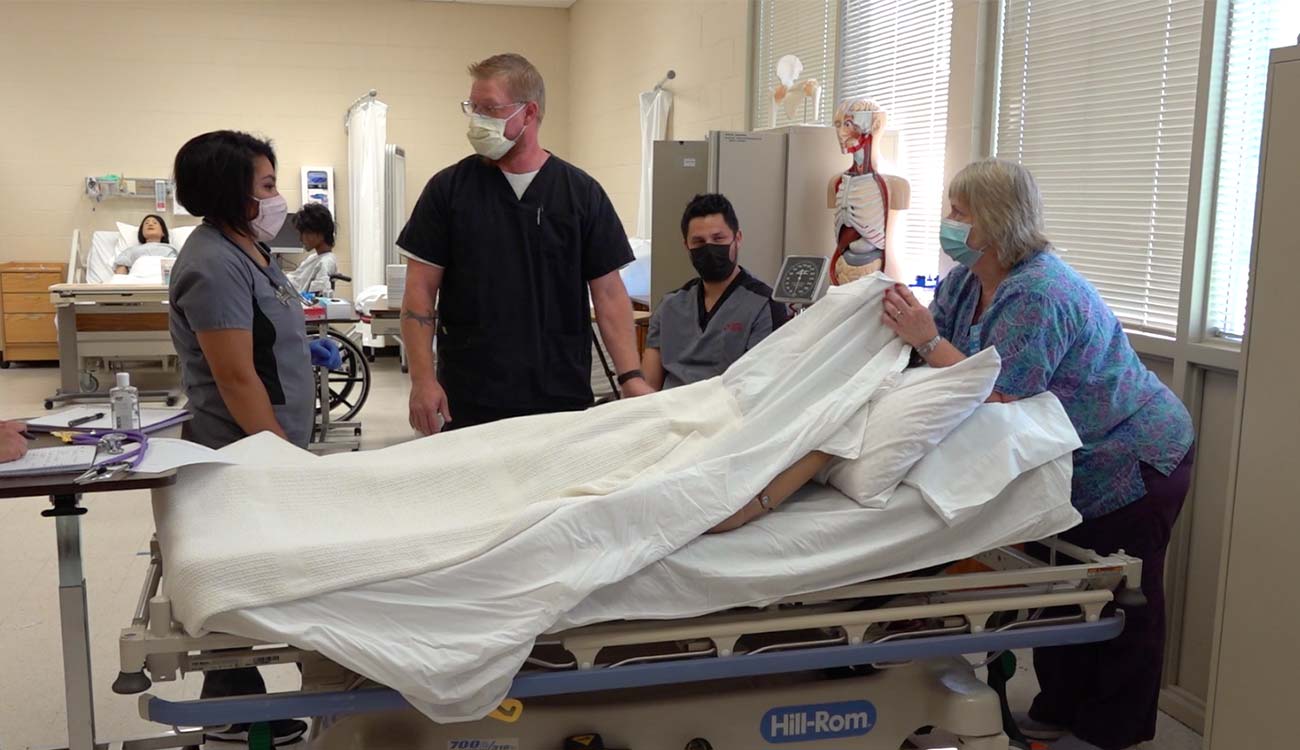Entering health care during pandemic, recent nursing graduates lean on ability to embrace change
Garrett Hovenkotter was just starting his second quarter of nursing classes at Yakima Valley College when COVID overturned normal life in early 2020.
But even as health care professionals in hospitals and health care facilities across the country were slammed by the pandemic, Hovenkotter never wavered in his desire to become a caregiver.
“Going online with our classes was difficult at the start, but I never questioned becoming a nurse,” he said. “I pretty much decided I was just going to have to get through it.”
That commitment was born after Hovenkotter broke his leg in high school, shortly before his team’s soccer season was about to start.
“The ER nurses were great,” Hovenkotter said. “They were super reassuring. They took care of me, not only my physical health, but emotionally as well. I knew then that I wanted to do that and pass it along to others.”
Hovenkotter graduated from YVC’s nursing program in December 2021 and started working at Yakima Valley Memorial Hospital in January, just as the Omicron wave created a spike in patients visiting the hospital. And with the hospital, like many across the country, being short-staffed it meant Hovenkotter was needed on the floor quickly.
“Going through school during the pandemic, there were a lot of times we were confronted with change. It’s made me more comfortable adapting to change and going with the flow as conditions have changed with the health situation in our community.”
— Garrett Hovenkotter ’21
“COVID adds a whole new group of people coming to the ER, and the acuity of their sickness is a bit more,” he said. “Finding staff to do orientation is difficult when you have a lot of patients to serve. So that process was sped up.”
That’s meant more responsibility for Hovenkotter, but it’s also allowed him to learn more quickly in this first months on the job.
“Going through school during the pandemic, there were a lot of times we were confronted with change,” he said. “It’s made me more comfortable adapting to change and going with the flow as conditions have changed with the health situation in our community.”

Chandra Pease also was starting YVC’s nursing program when the pandemic hit and echoed how the pandemic illustrated how adaptable nurses must be.
“It’s funny because we were learning how dynamic nursing is and how it changes constantly — either the practice of it or your patient’s condition at bedside,” Pease said. “So when the pandemic changed up the way we were to be taught, it didn’t change the fact that I wanted to be a nurse. It allowed me to see how resilient I could be.”
Pease’s father also started his nursing career at YVC, and she was attracted to the college’s reputation for providing more hands-on and clinical experience than other nursing programs. While the pandemic did force health care providers to place some restrictions on students coming into their facilities for clinical experiences, she said YVC did a good job preparing her to transition from being a student to bedside nurse.
“YVC I think puts you in the most real life mindset,” Pease said. “The pandemic truly made me trust myself more, trust what I really know and believe it. Healthcare became more dynamic in ways I never thought I’d see in my lifetime but to trust my own gut and my own knowledge became my rock.”
It’s also helped recent graduates that many local nurses are alumni of YVC’s nursing program. Hovenkotter said that means his fellow Yakima Valley Memorial nurses are familiar with the skills he’s bringing with him and the situations to put him in that will enable him to continue growing his nursing skills.
“Since they know what you’ve been through it makes your transition a little smoother,” he said.
“YVC I think puts you in the most real life mindset. The pandemic truly made me trust myself more, trust what I really know and believe it.”
— Chandra Pease ’21
Amidst the challenges of entering a health care profession during the pandemic, however, Hovenkotter is glad to have achieved his goal.
“It’s been very rewarding to help people,” he said. “In the ER you can help people who are very sick and maybe dying. And then there’s parents bringing in their kid and you can reassure them and help them get home. That’s a great feeling to be able to make that impact.”
